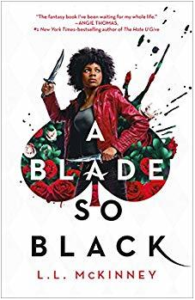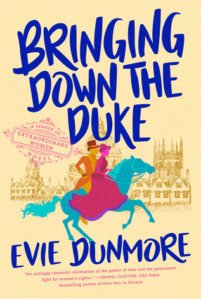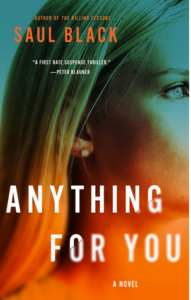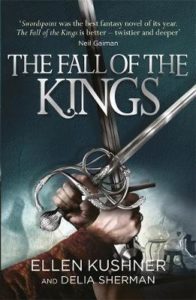I’m not one of those people who enjoys underlining inspiring/meaningful passages in a book but oh wow, was I tempted to here!
Full disclosure, I am an old. While born at the tail end of Gen X, I find myself often exhibiting trademark Millennial behavior, likely because I grew up overseas and am unafraid of technology. Regardless, I haven’t been a young person for at least a year, depending on one’s interpretation of youth (which, in some organizations, goes up to 40, a fact which once blew my much younger mind.) So this book probably shouldn’t speak to me as much as it does, but it does.
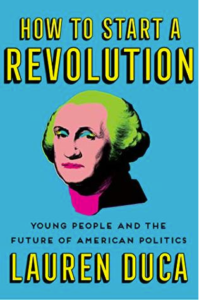 In 2016, I finally became an American citizen after years of hemming and hawing, because I wanted to be able to say I’d voted for Hillary Clinton against what, to me, was a blatantly obvious example of creeping authoritarianism. On the one hand, I thought, “This is America. We don’t vote for strong men espousing banana republic policies. We’re too smart for that.” But having grown up in a paternalistic regime, I wasn’t dumb enough or comfortable enough in my immigrant status to count on other people doing the right thing when I could be doing the right thing. I donated to Hill’s campaign, put up posters and voted. Watching the election results as they came in three years ago was like viewing a slowly unfolding horror movie: by the time the Pennsylvania results rolled in, I could only mutter, “Thanks for nothing, Pennsylvania” and go to bed, hoping for a miracle.
In 2016, I finally became an American citizen after years of hemming and hawing, because I wanted to be able to say I’d voted for Hillary Clinton against what, to me, was a blatantly obvious example of creeping authoritarianism. On the one hand, I thought, “This is America. We don’t vote for strong men espousing banana republic policies. We’re too smart for that.” But having grown up in a paternalistic regime, I wasn’t dumb enough or comfortable enough in my immigrant status to count on other people doing the right thing when I could be doing the right thing. I donated to Hill’s campaign, put up posters and voted. Watching the election results as they came in three years ago was like viewing a slowly unfolding horror movie: by the time the Pennsylvania results rolled in, I could only mutter, “Thanks for nothing, Pennsylvania” and go to bed, hoping for a miracle.
There was no miracle forthcoming, alas, and I spent that morning crying my eyes out. Even living in my progressive Maryland suburb, with neighbors I love and feel safe around (except for that one couple: fuck those douchebags,) I had never felt more afraid to be a female Asian Muslim immigrant. Weirdly, it took seeing the raw grief of a straight white male friend to finally comfort me. Not that misery loves company — I had plenty of that from other friends who felt freshly vulnerable for being a member of a minority — but because it felt like we had allies, that not all of majority America was complicit in the rejection of those of us who weren’t part of a white evangelical monoculture. “But what,” I thought, as I recovered from my downward spiral of emotion, “can I do next?” I upped my charitable donations, subscribed to quality journalism (I’m still sad Teen Vogue was forced to go from print to digital — guess I’m not that much of a millennial after all,) voted in the midterms, and made my voice heard to both my elected representatives and to politicians of note. There’s nothing more nerve-wracking to me as a quasi-millennial than to call a number in order to log my objections: I sat in my bathroom rehearsing the speech I’d written on my tablet before calling and, blessedly tho perhaps less effectively, speaking to voicemail. And still this president and his cronies are in office, squeezing as much personal gain out of their positions and our nation’s coffers as they can. “Am I not doing enough?” is one question I often ask myself. Another is, “but what else can I realistically do?” I have a job, three small kids and an attachment to 8 hours of sleep a night, and I’m still exhausted half the time.
And that’s where this terrific manual comes in. How To Start A Revolution begins with a snapshot of that galvanizing time around the 2016 election when young people especially realized that politics could not be impenetrable if a failed businessman turned reality TV star spouting phrases deeply antithetical to American values could become President. It captures the rage and helplessness that permeated large swathes of the country as majority opinion was defeated by what Lauren Duca cleverly terms the “political-industrial complex”. It addresses the reasons that allowed this state of affairs to come to pass, but then showcases examples of how young people are fighting back. And then, most importantly, it tells readers what we can do to help.
It’s a really simple three-step process, that I’ll share here on the assumption that Ms Duca won’t mind: Learn. Decide. Act. She enjoins us to educate ourselves on the issues, reading a balanced variety of accounts from reputable sources. She wants us to make informed opinions on the issues, and then do what we can to put our beliefs into action. This last can be as simple as not staying quiet when someone we know spouts a political talking point we know to be bullshit. It’s about showing up and being heard, in any of the many small ways that we as citizens in a democracy must help to maintain the civic health of our government and community. Not all of us can run for office or spearhead a campaign — hell, not all of us can even actively volunteer or donate! — but we can all do what we can, to learn, to decide and to act on our beliefs. None of us are perfect, but we can all help to keep perfecting this grand American experiment in freedom and democracy.
Ms Duca’s book has been an eye-opener both for how we got here and for what we can do next. Written in a highly accessible style, it’s the perfect manual for anyone, young person or otherwise, who wants to change American politics for the better. For being less than 200 pages, it’s a surprisingly dense read, and one I highly recommend to anyone who cares about the future of our country.
I’m planning on conducting a Q&A with Ms Duca in the near future regarding this book, so I’ll keep you posted on how that goes. It’ll be a bit of a departure from our usual author interview; as such, I’m soliciting questions you might like to see answered! Comment here or contact me personally: you know the drill.
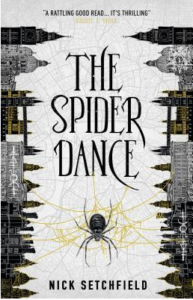 Winter thought he’d left that all behind, but several factors, including a lack of gainful employment, persuade him to go undercover once more to help Alessandra Moltini escape. Aided by one of the service’s first female field agents, the utterly charming Libby Cracknell, he travels to Hungary and meets Alessandra, then things quickly go haywire. Double-crossed and forced to flee for Vienna, Alessandra brings the trio to her own masters, who set them on a chase through Europe to take down one of the most powerful figures of a rival establishment, mightier even than the SIS.
Winter thought he’d left that all behind, but several factors, including a lack of gainful employment, persuade him to go undercover once more to help Alessandra Moltini escape. Aided by one of the service’s first female field agents, the utterly charming Libby Cracknell, he travels to Hungary and meets Alessandra, then things quickly go haywire. Double-crossed and forced to flee for Vienna, Alessandra brings the trio to her own masters, who set them on a chase through Europe to take down one of the most powerful figures of a rival establishment, mightier even than the SIS.


